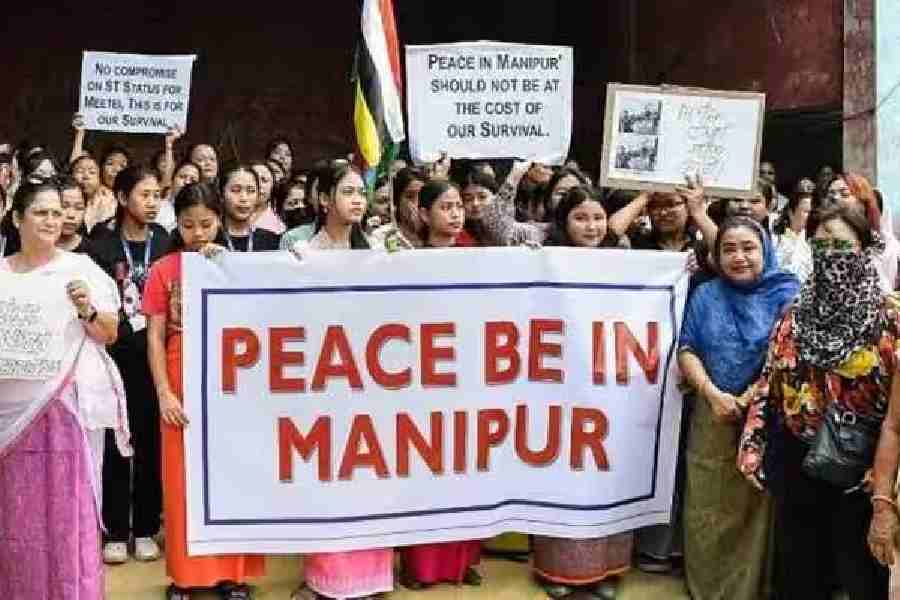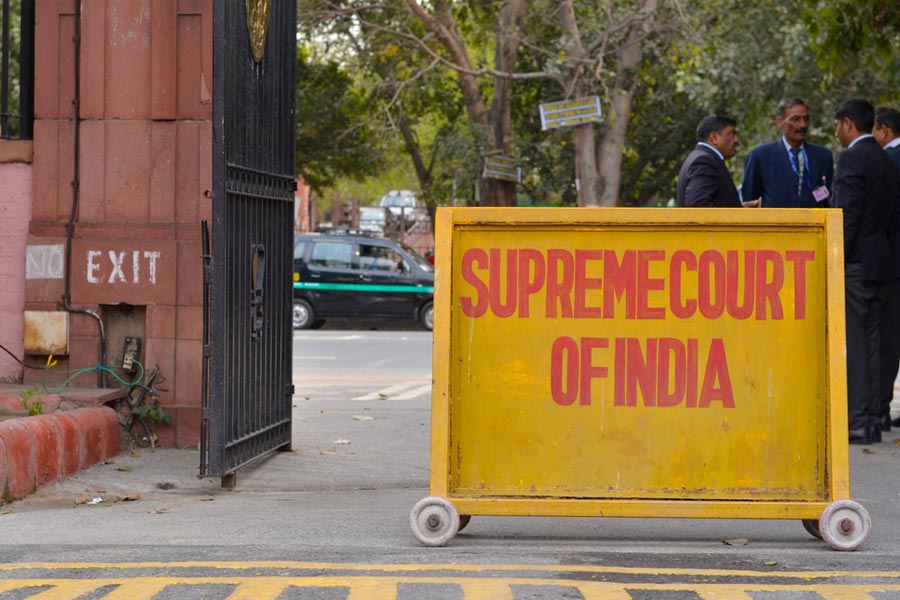The Supreme Court on Monday declined to interfere with a Manipur High Court order that had asked the state government to explore the feasibility of providing Internet services through mobile phones and fibre-to-the-home connections (FTTH) on a case-by-case basis.
Internet services have been banned in Manipur for 75 days now since May 3, causing numerous hardships, including bottlenecks in medicine supplies. A Church elder had said last week that barring online services in today’s age is “nothing short of a human rights violation”.
On Monday, the bench of Chief Justice D.Y. Chandrachud and Justices P.S. Narasimha and Manoj Misra asked solicitor-general Tushar Mehta to approach the high court with Manipur’s grievance after the government law officer, appearing for the state, spoke of practical difficulties in implementing the order in view of the law-and-order situation.
The court passed the directives while refusing to entertain Manipur’s appeal against the high court order, which had directed the state to carry out physical trials to restore Internet services to mobile phones while ensuring that life and property were not affected.
The high court had said the state home department may take steps to facilitate FTTH connections on a case-by-case basis. FTTH, also called fibre-to-the-premises (FTTP), refers to the installation and use of optical fibres from a central point to individual buildings to provide high-speed Internet access.
While passing the directions and seeking a detailed report on the subject, the high court bench of Justices A. Bimol and A. Guneshwor Sharma had posted the matter for further hearing on July 25.
Aggrieved by the order, the Manipur government had rushed to the apex court.











